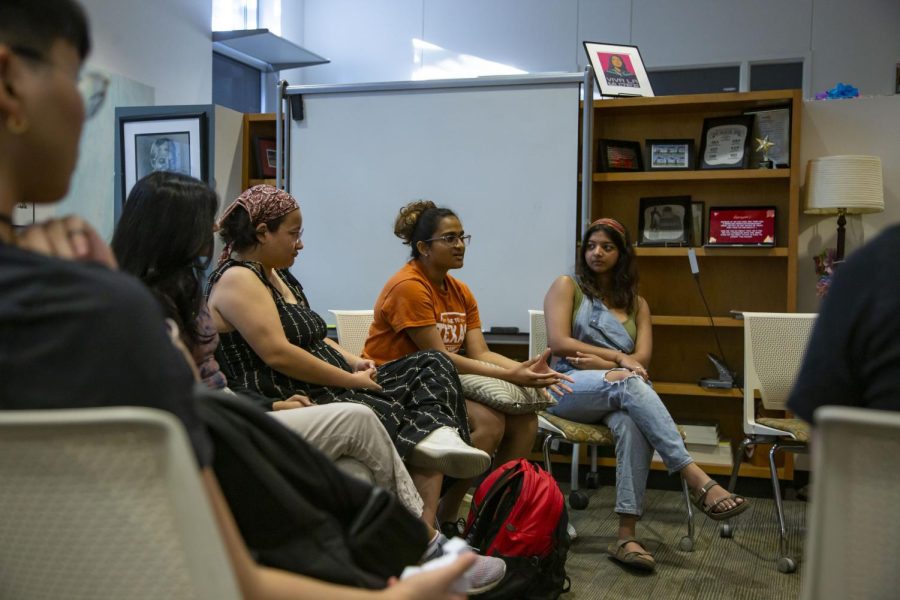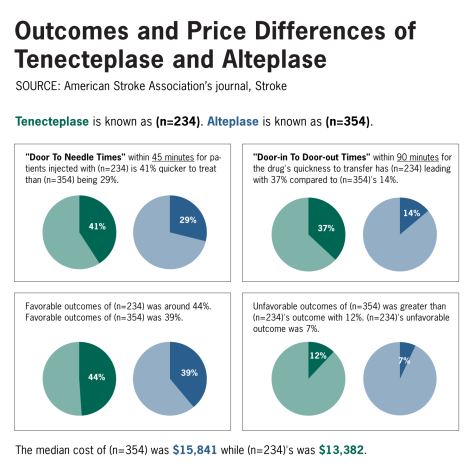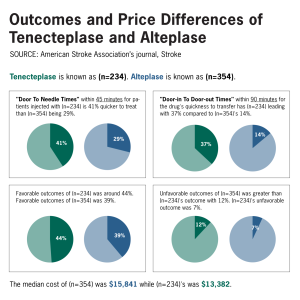ADPAC hosts the Asian American Leadership Institute to explore the intersectionality of identity, leadership
Neuroscience major Khushi Bhakta speaks at an ADPAC meeting on Oct. 6, 2022.
October 10, 2022
Oct. 6 marked the first session of the Asian American Leadership Institute, where every Thursday at 5 p.m. for six weeks, a cohort of around 20 students gather over snacks to discuss topics related to identity and develop leadership skills.
AALI has returned to an in-person format this year, after two years of virtual events due to COVID-19. The event, put on by UT Asian Desi Pacific Islander American Collective, engages participants in group discussions with other students and allows them to hear from speakers on topics such as mental health, the glass ceiling for Asian Americans, non-traditional career paths and how each is interwoven with identity, said Rachel Joseph, special events officer at ADPAC and junior business major.
Joseph said diversity doesn’t equal inclusion, and just because the University is diverse does not mean everyone is included. This is why Joseph wanted AALI to be a place where everyone could learn and feel included, she said.
“The point of the institute is to come talk about your identity, your culture, and what that means to you,” Joseph said. “Being American born, not being American born, coming into this campus, whether you came from a small town or large town … we’re just going to discuss deeper, heavier topics … especially when it comes to taboos.”
In addition to the discussion of these topics, AALI hopes to serve as a space for discussion and an opportunity to learn from the diverse perspectives each participant has to offer, said Isma Khokhar, a biochemistry junior and co-chair for special events at ADPAC.
“That’s our main part with AALI is (that) we’re trying to present information to (students) but also have it so that it is a comfortable space for everyone to unpack on where they are in their journey of culture and identity, but also, learning from other people’s experiences and moving forward with that,” Khokhar said.
Participants like Ivy Fan, a biology freshman who attended the first session of AALI, appreciates the safe space.
“Even though we’re tied together with this Asian identity, our individual experiences are also different,” Fan said. “And having people to share either their opinions or their struggles is really eye-opening and inspiring for me … to understand each other’s differences and really look at individuals as themselves.”
Joseph said ultimately, AALI also aims to develop leadership skills. Joseph and Khokhar both said AALI hopes to accomplish this by encouraging participants to take what they learn at AALI and share it with those outside of the ADPAC sphere.
“We want that skill of being vulnerable and being able to take what you’ve learned here and apply that to your outside world,” Joseph said. “Educate others, educate your roommates, educate your parents — that’s just a small milestone, and you continuously try to educate and learn.”







